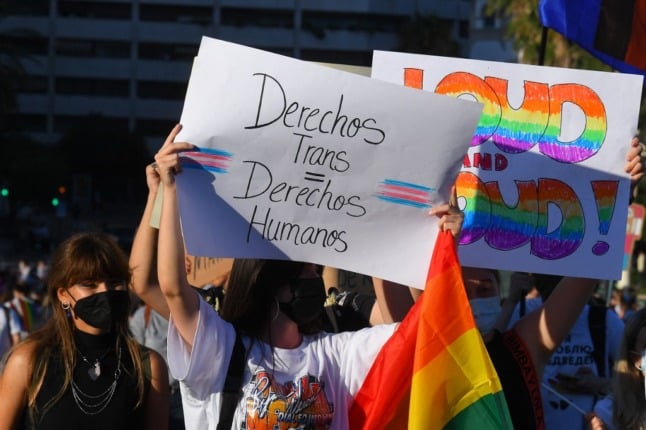The 27-year-old beat 22 fellow contestants to claim the Miss Universe Spain crown in the Spanish city of Tarragona last Friday.
Her win grants Ponce a place to compete in the worldwide Miss Universe contest set to be held in Philippines in December 2018.
Ponce who was born in Pilar, a village near Seville was crowned Miss Cadiz in 2015 after competing in the coastal city where she spent her summers.
READ MORE: Miss Spain hopeful aims for beauty pageant history as first transgender
Explaining why she wanted to compete in the ultimate beauty queen competition rather than the equivalent Miss International Queen which is held for trans women, she told El Pais:
“I appreciate that there are contests like that, of course. But I am Angela, I am a person, I am a woman and, within the range of diversity of what it is to be a woman, I am a transsexual woman. I want to be me and that people respect me as such.
“It is the same as if a gypsy woman was told that she cannot participate in Miss Universe because she has to do it in a contest exclusively for gypsies. Why? I've never been a man, in my DNA I was a woman before I was born.”
“Let’s make history,” Ponce wrote in a message on Twitter tagging Pride Month to note her win’s timing at the end of June.
Let's make history♥️?? #Pride2018 #MissUniverseSpain2018 https://t.co/0kyJTREAHf
— Angela Ponce-Official (@angelaponceoff) July 1, 2018
“Bringing the name and colors of Spain before the universe is my great dream,” wrote Ponce in Spanish on Instagram.
“My goal is to be a spokesperson for a message of inclusion, respect and diversity not only for the LGBTQ+ community, but also for the entire world,” she wrote.
Watch her competition highlights:
READ ALSO: The ultimate guide to Madrid Pride 2018



 Please whitelist us to continue reading.
Please whitelist us to continue reading.